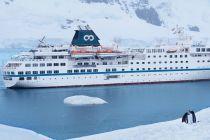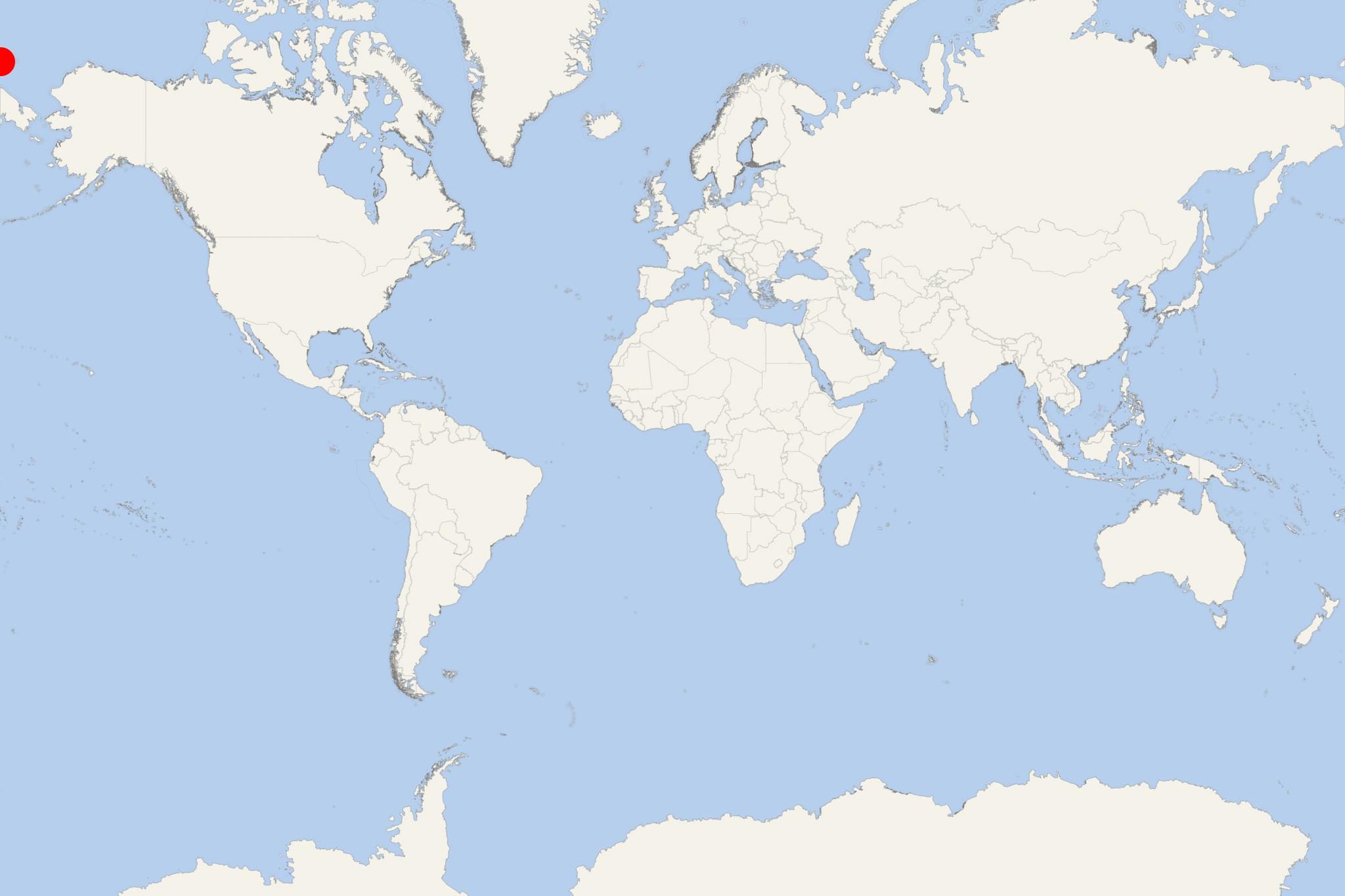Wrangel Island Russia
Cruise Port schedule, live map, terminals, news
Russia's Wrangel Island is in the Arctic Ocean (between the Chukchi Sea and the East Siberian Sea). The closest land is Herald Island - approx 60 km (37 mi) to the east. The distance to mainland Russia is 140 km (87 mi). Most of the Wrangel and Herald Islands are federally protected nature reserves.
Cruise ships to Wrangel Island dock/anchor at either Ushakova Cape (Ushakovskoye), Krasin Bay, Cape Waring, Cape Florens, or Cape Blossom.
In 1976 was established the Wrangel Island Nature Preserve (consisting of the island and its surrounding waters out to 45 km / 28 mi). The "nature reserve" ("zapovednik" in Russian) classification is the country's highest level of protection and also excludes any human activities other than for scientific purposes.
The island is inhabited by only 4 rangers (residing on it the whole year-round), and during the summer is visited by a core group of Russian scientists conducting research. There is a weather station and 2 former fishing settlements (Ushakovskoye, Zvyozdny).
In 2004, Wrangel and the Herald Islands and their surrounding waters were designated UNESCO sites.
In 2014, Russia announced plans to build a naval base on Wrangel Island, consisting of all 68 prefabricated modules.
The island covers a total area of 7600 km2 (2900 mi2) and consists of southern and northern coastal plains and central mountains (Tsentral' nye Mountain Range). The highest elevation point (Sovetskaya Mountain) is 1096 m (3596 ft) above sea level.
The island is a breeding ground for polar bears, Arctic foxes, wolves, seals, walrus, and lemmings. During the summer, it is visited by seabirds, bowhead whales, and gray whales.
The flora consists of a total of 417 plants - more than on any other Arctic island.
Woolly mammoths (extinct species) survived here until 2000 BC, which is the most recent survival of mammoth populations known to man. Isolated from mainland Asia, around 1000 animals lived on the island for nearly 6000 years.
- Cruise Industry

Heritage Expeditions launches 2022-2023 cruise season of MS Heritage Adventurer/RCGS Resolute
Pioneering New Zealand-based small-ship cruise company Heritage Expeditions (under-charter ship operator) released its 2022-2023 expedition season...
September 1, 2021 - Cruise Industry

Aurora Expeditions' new cruises for Sylvia Earle ship in 2022
Aurora Expeditions launched a new lineup of expeditions for 2022. Early-bird bookings receive savings of 25% off. The small-ship company will...
January 27, 2021 - Cruise Industry

Crystal Endeavor to Sail Rare Itinerary
Crystal Cruises’ newest yacht Crystal Endeavor will sail a route that has captivated explorers for centuries. The cruise ship embarks from...
February 15, 2019 - Cruise Industry

Kapitan Khlebnikov to Explore the Russian Arctic in 2019
Wild Earth Travel is due to sail across top of the world to explore Russian Arctic onboard the famous Russian Icebreaker, Kapitan Khlebnikov, July...
December 17, 2018 - Cruise Industry

Heritage Expeditions to Operate Russian Icebreaker
New Zealand-based expedition cruise line Heritage Expeditions announced it will be operating former research vessel and world-renowned Russian...
November 23, 2018 - Cruise Industry

Silversea's Silver Explorer to Cruise Northeast Passage 2019
Silversea Expeditions is currently celebrating its 10th anniversary with the first for the line Northeast Passage crossing. The route transits Arctic...
July 19, 2018 - show more news
